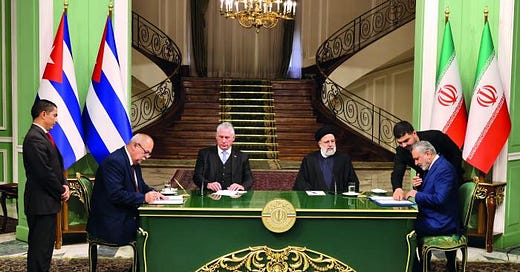Iran and Cuba have developed political systems that are condemned as authoritarian by the Western powers. The condemnation, motivated by imperialist interests and shaped by ethnocentric assumptions, is not based in a quest to understand the logic and the reasonableness of the two systems, formed out of the history and the politics of their respective nations. In the case of Cuba, it was a matter of forging structural alternatives to the indirect control of the United States, in order to fulfill the aspirations of a people’s revolution for national sovereignty that had been launched in 1868. In the case of Iran, it was a question of developing alternatives to U.S. and Western domination through the forging of a social system based on the revelations of the Prophet, whose teachings pre-date modern European colonialism, in a nation with a population that is 99% Muslim. The two nations stand in revolutionary practice on the principle of the necessity of a pluripolar world order, …
© 2025 Charles McKelvey
Substack is the home for great culture


